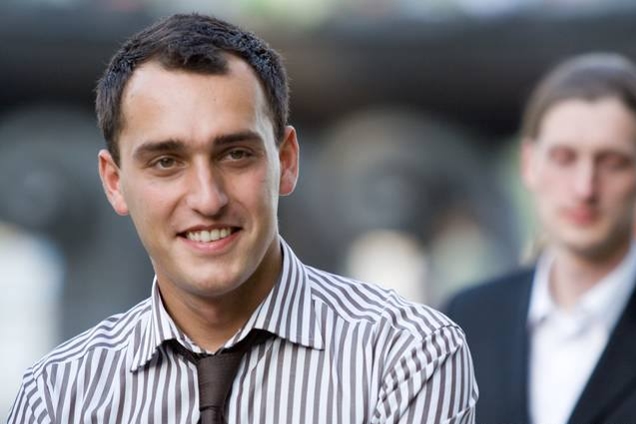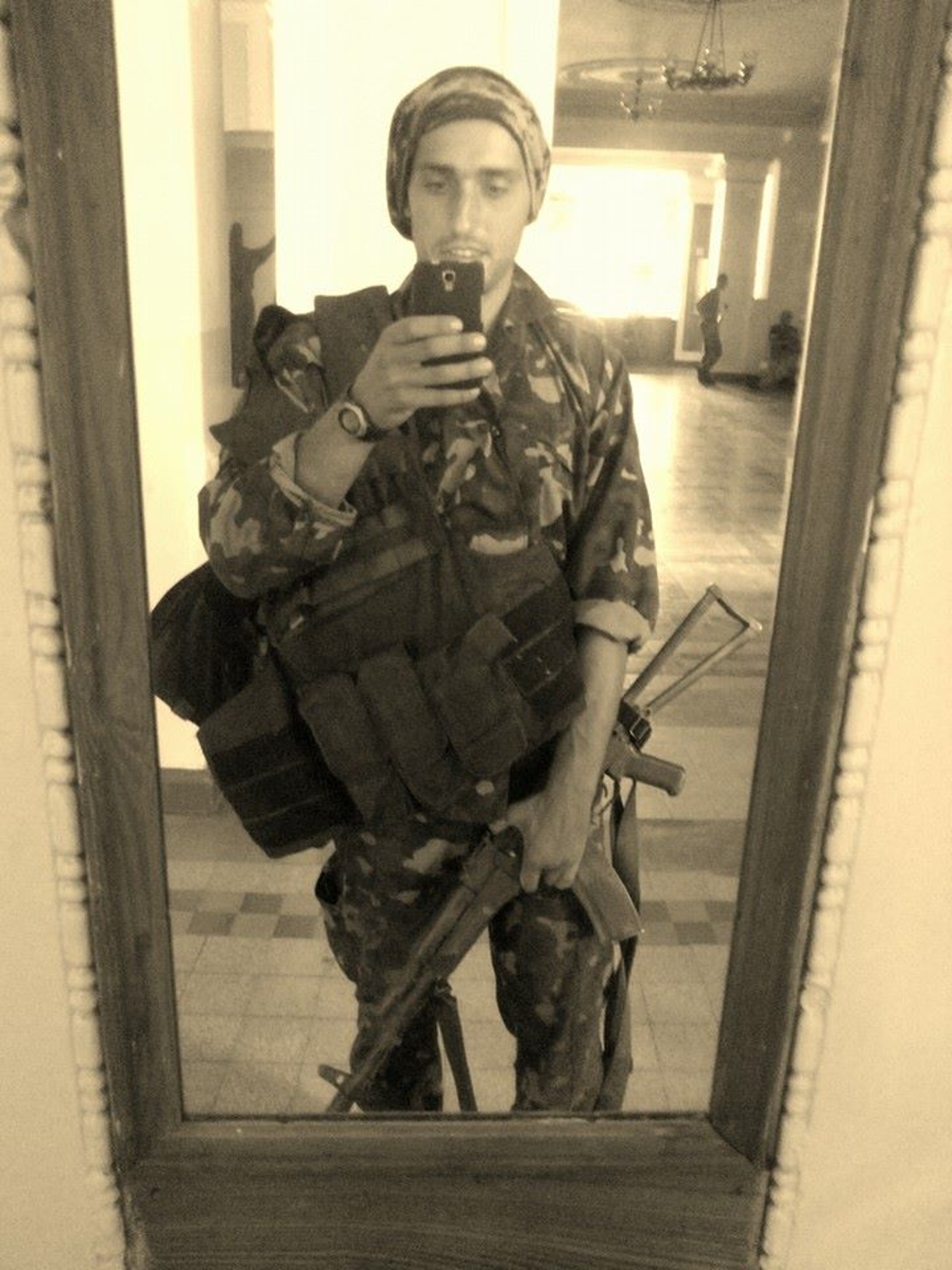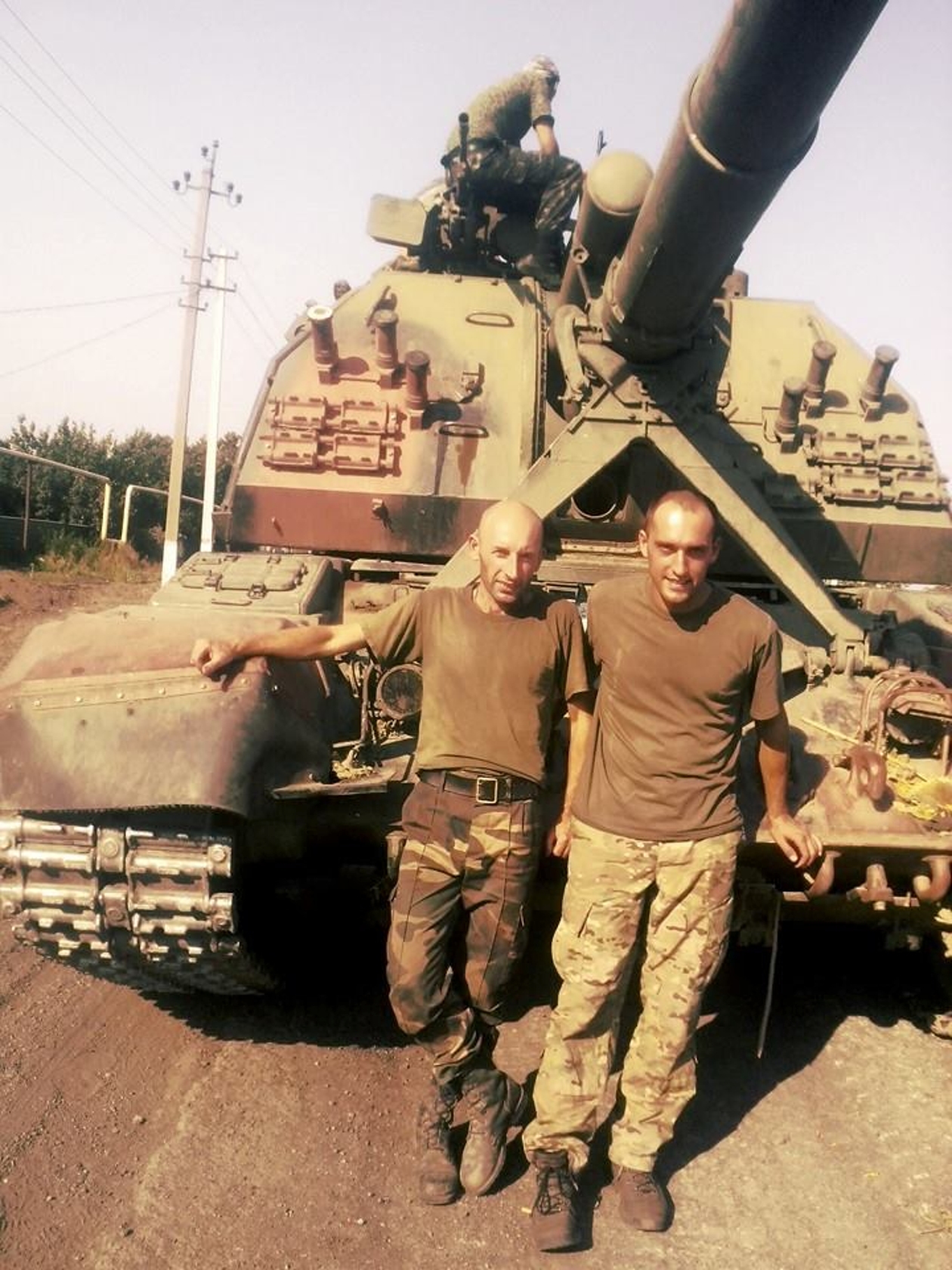AFTERILOVAISK. “Grek”
Photo by Markiian Lyseyko
Khorunzhyi Artem, codename “Grek”. I went to the war in May 2014.
Before the war I had been a lawyer. I had not served in the army, and – in fact – had nothing to do with military affairs. I only read a lot about it and went hiking.
If there is a war in your country, and you’re a healthy man who can hold weapon, then you have to go to war.
I immediately did not want to be assigned to a check point. What I wanted was a real war. And everything I saw in the war was actually not very different from what I had expected from it.
My relatives supported my decision and helped me; it was impossible to change my mind.
Just like everyone else, we were leaving Ilovaisk as a part of a column. I remember that in the morning we had problems with the wheels, so we lagged a little bit behind the column: we were replacing the wheel and lagged behind everyone else. Of course, compared with those future problems, this looks funny now.
Then we got to Mnohopillia and there I first saw how many people were taking part in all of this. In Ilovaisk there were not many of us. Well, maybe there were many people, but you did not see everyone at once, whereas in Mnohopillia, there was definitely a huge amount of people. It turned out that we had canons, tanks … I remember that it was another surprise – so this was how numerous our troops were!
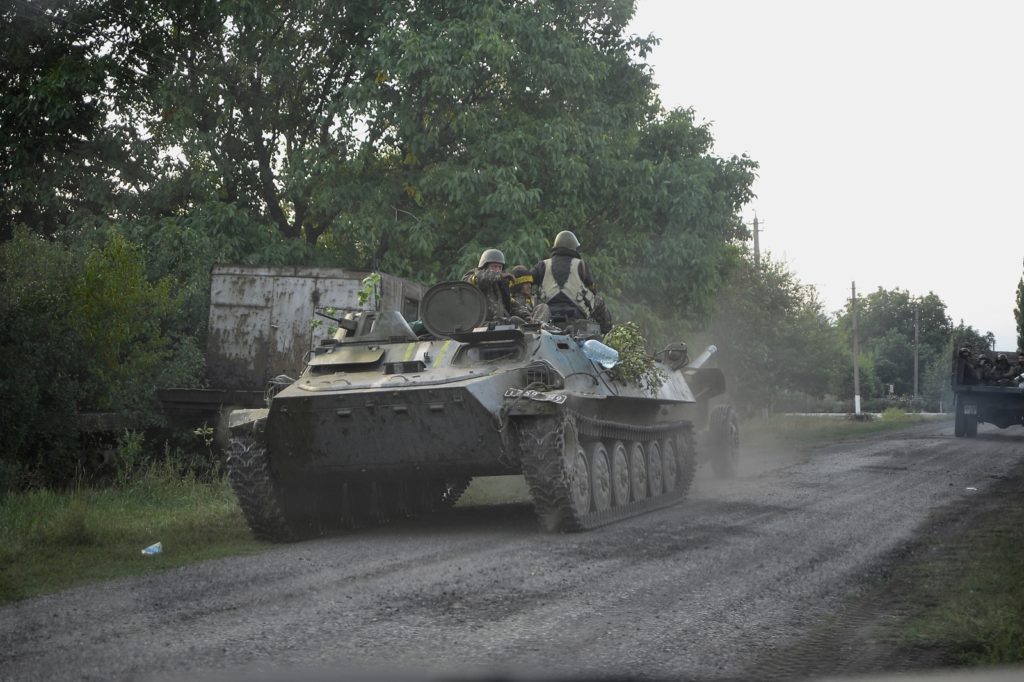
The next important episode was when they began to shell us. And we all jumped into the cars; there was an order to “start”. And then we were in the moving bus, and everything was like a movie. We were somewhere in the middle of the column. Everything started to explode; cars were thrown into the sky in front of us. At some point we stopped. In the middle of a field. Everyone got out of the car. And there was a field of unharvested corn in front of me. There was nothing to shoot at, because all I saw was corn on the left and burning cars on the right. Then we decided that we had to move further. And several more people jumped into our bus. There had never been so many people in that bus as there was on that day. At some point, the bus was raked by something heavy. The bus was armored, so neither 5.45 nor 7.62 (bullets caliber) could break that glass which this thing broke. In fact, it’s very surprising that no one was hurt. But pieces of glass got into my eye and bothered me all day. In the end, it was my only injury that difficult day.
We had to drive to the side, because it was impossible to drive down the road. There were burning cars ahead of us. And we got stuck, made a pancake landing. It looked like someone’s bad joke. But Valik, who was the driver, pulled us out. The car did not let us down.
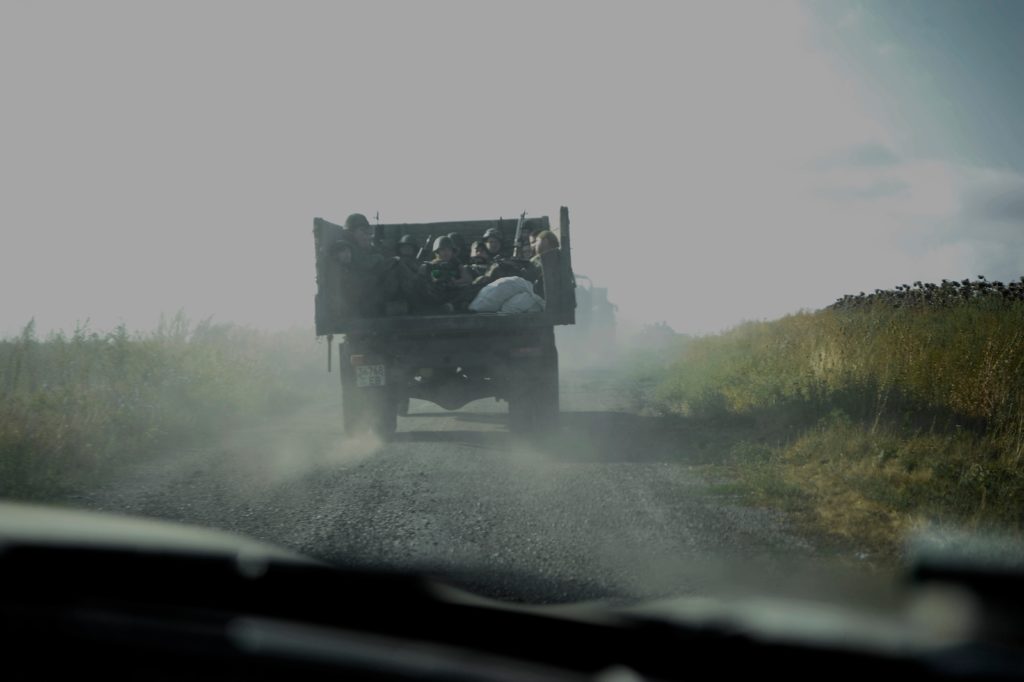
We drove further through the field and got to Chervonosilske, where we all got out of the car once again. Here we could not understand anything. We could only see houses in front of us, and no one was shooting from them. The battle was taking place somewhere to the left, to the right. And we once again got into the car and drove a few dozen meters. Then we stopped and scattered. This is when I lost the guys. In fact, there was a squad from my platoon, and it turned out that everyone went to the left, whereas I went to the right. Then it turned out that we were a couple of houses away from each other, and we found one another. Sometime later a tank fired at our car, and nothing was left of it. My number 1 Zhora (sniper – editor’s note) even managed to shoot at several targets.
In fact, I still do not understand how long all of this lasted – their fire, our fire. Then the explosions of ammunition started. Summer, everything was burning, and there was still grass on the side, which had not been burned yet. In fact, that was a pretty good summer day; bullets, debris, and shells were constantly whistling above your heads. And you lie and think – maybe you should fall asleep? Well, in this particular situation, there is nothing you can do. You cannot move too.
Photo: “Zhora” (left) and “Grek”, Avdeyevka author Alexander Hliadielov
Eventually all this was over. And these senseless, stupid negotiations we conducted with the Russians began. They were lengthy, boring, and fruitless. Why do I say “with the Russians”? Because they did not conceal that they were Russian, we even captured several of them. Some tank commanders, some paratroopers. And they openly said that they were Russians, regular troops, regular units, etc. There only were Russians, at least those who took part in our battle. Therefore, I have no doubt as to who we were fighting against.
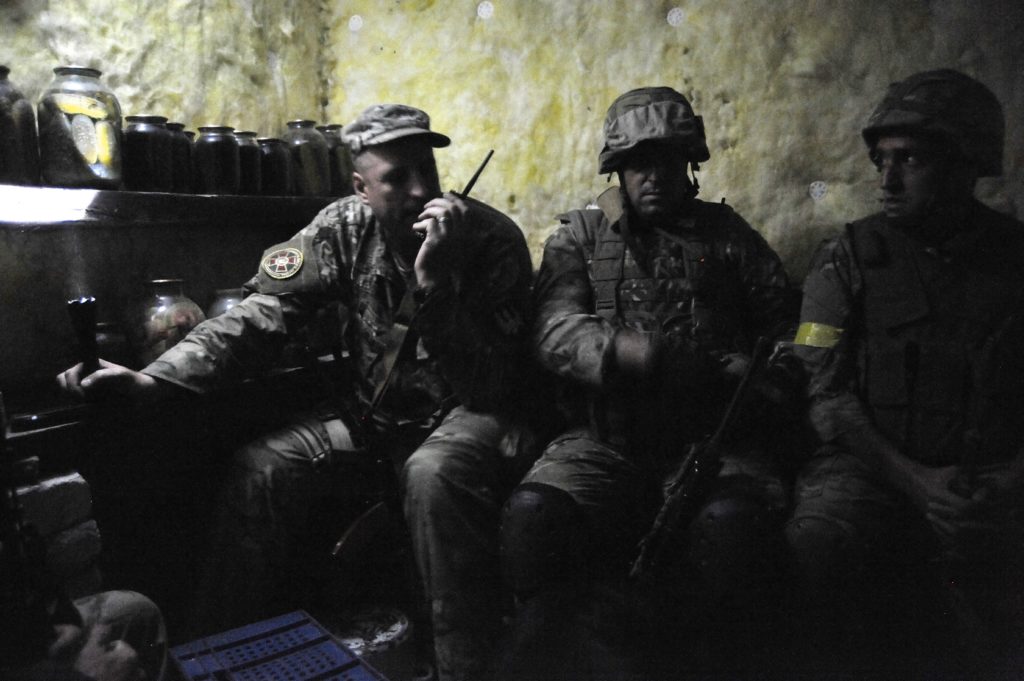
Frankly speaking, it’s hard to put everything in chronological order. We contacted our command, who told us that a column was coming for us. They were telling us fantastic stories: that a column was coming to take us, that they had agreed with the General Staff of the Armed Forces of the Russian Federation about us, that the Red Cross was coming, that some tanks were coming. There were many options. But this did not affect our situation in any way.
From time to time, the fighting resumed. I remember that we were confused by white marks on their equipment, white flags. We did not always understand whether we could shoot at them, because there was a white flag hanging!
In the end, everything died down, and we could find mobile service, which was almost impossible in Ilovaisk. Here one could climb the roof of some house which had not yet been destroyed and call. I called home and said that I was alive, that everything was fine, but it was not clear what would happen next. A father of one of the guys who served with me called me. I told him that everything was fine. At some point I started to feel piercing pain under my helmet. I took it off and found a piece of shell. It pierced the helmet, but was not powerful enough to do anything else.
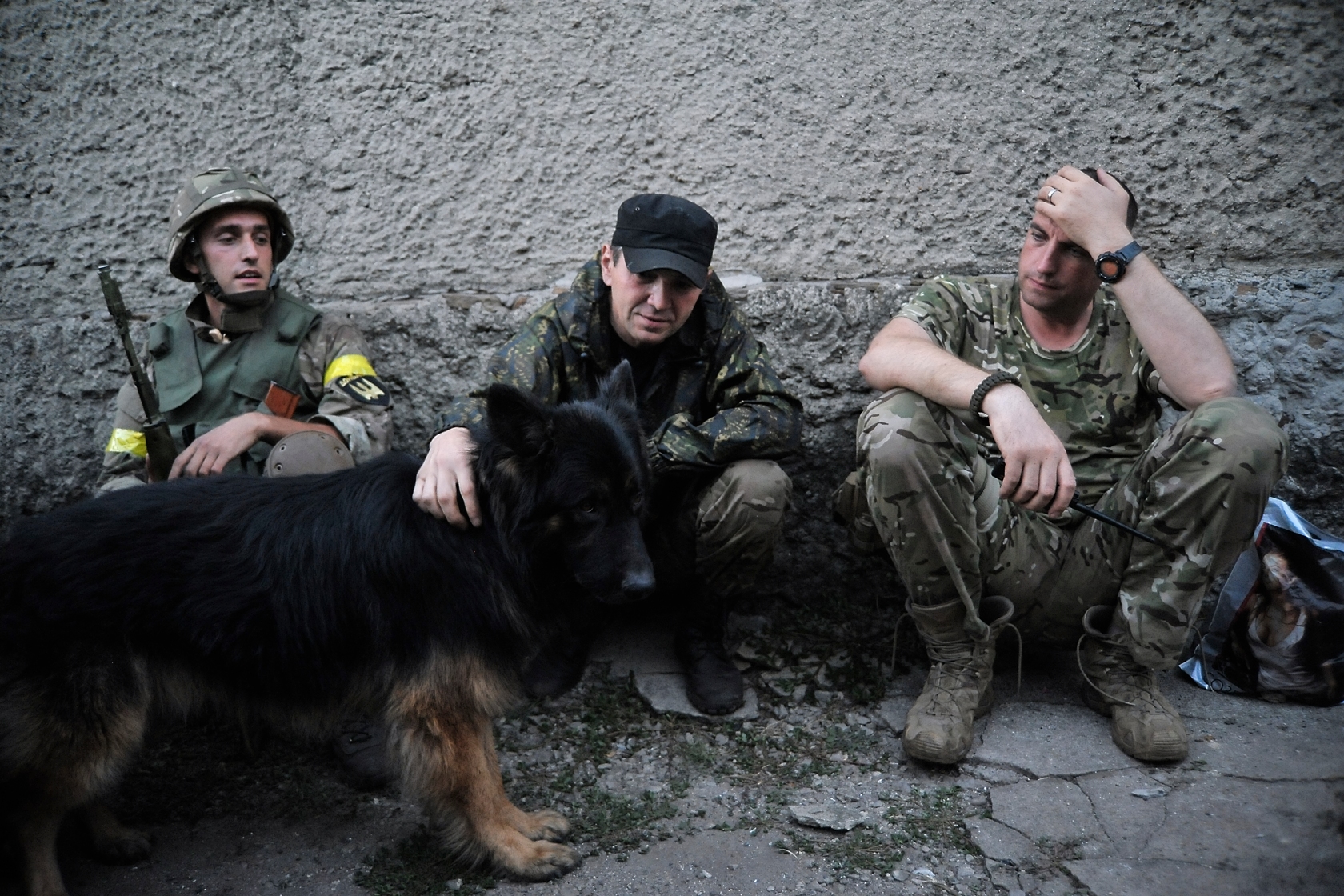
When I was speaking with relatives, everyone already knew that something terrible was happening and that we had not left easily; everyone was worried. The thing is that at the moment when we were leaving, our cell phones were switched off. And at the moment when we were calling relatives, it was clear that we were located on 10 square meters. Well, maybe not 10, but 100, we gathered together, and there was already no point in pretending that everything was fine.
Then the night came. By the way, it was a summer when days were extremely hot and nights were cold. That summer I had to spend many nights somewhere in the fields, or up to my eyeballs in mud, or somewhere else, and it was always cold. That was a really cold night. At the end of the night, we managed to light a fire, warm up, and sleep a little.

In the morning, absolutely meaningless negotiations continued. Lengthy and boring. The key point was as follows: Russians wanted us to lay down arms and surrender. We were in touch with our command, and nobody told us to surrender. They told us to dig trenches, organize defense, and await help. There was no order to “Surrender!”
“No, no, help is on its way.” So we somehow continued to buy time. Eventually, many people left. Actually, it was my immediate commander who decided that we stayed with the wounded. We had a lot of wounded, and we could not leave them behind. In fact, only later there were some questions to those who left. Frankly speaking, almost all of them managed to get out, and it’s good that they did. For, it was actually easier to exchange 100 people than 150. Maybe this did leave a bad taste in someone’s mouth, but certainly not in mine.
I will say this: nobody was ready for this. Nobody at all. And none of us was taught how to get out of such a situation. If in that situation it turned out that losses were minimized, then it was, probably, for the better.
In the end, the Russian paratroopers – it seems to me that it was a battalion commander – promised us and gave us the word of a Russian officer, “Guys, you know that it would take us 10 minutes to destroy all of you here. You can, of course, die as heroes, but there is an option where you lay down arms. You do not need to hand the weapons over to us. Just leave without them. Then we will put your wounded into cars and will take them to the Red Cross, to your men. They will be treated by doctors as quickly as possible.
As for all of you, we promise that you will also be taken to your men. No DPR. We have nothing to do with the DPR, and you will not be taken to them. We agreed to this.
If there had been no key phrase “There will be no DPR”, we would not have agreed. We all knew perfectly well what it would mean for a soldier from a “Donbass” battalion to be captured by the DPR. Nobody expected that you could get out alive and not injured after such captivity. Actually, this saved lives of dozens of our wounded. They got to the hospital.
As for us – we spent the night and the morning with the Russians. We talked to them. There were people who said: “It’s all our land, we will seize everything from here to Lviv.” There was a guy (Russian – editor’s note) who said that only he and a couple more guys were everything that was left from his company, and he did not know how they would explain this at home. But then the DPR came. And we were taken into the basement of the Donetsk Security Service of Ukraine. It’s almost impossible to describe what we felt, let alone do it three years later.
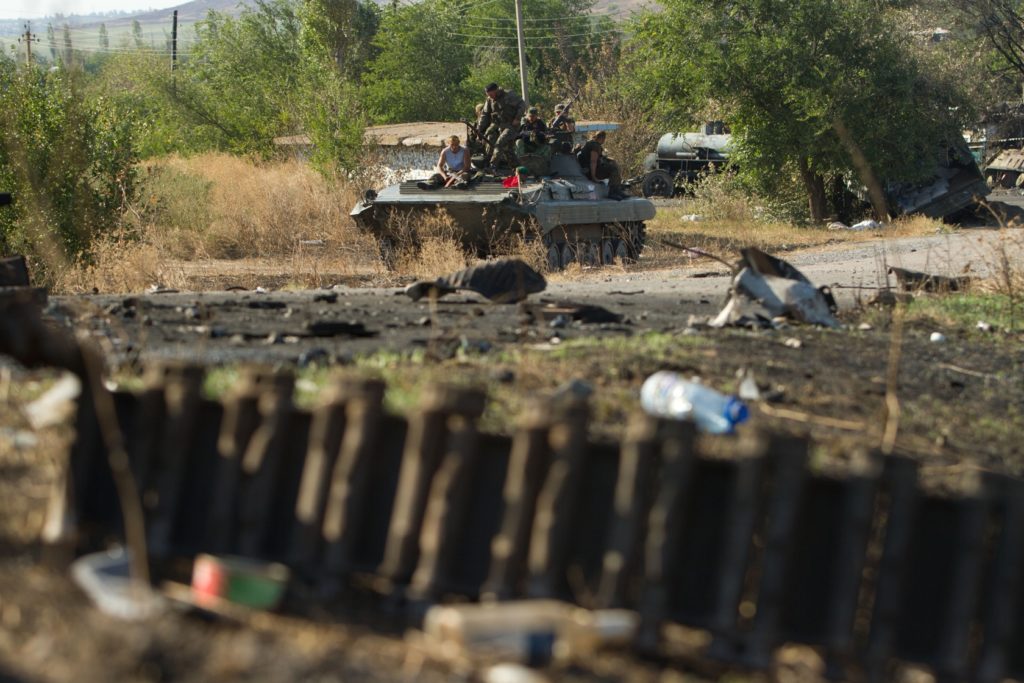
I must say that at the moment when you realize that this happened to you, your subconscious creates a kind of protective dome around you. And everything that is happening to you is like a movie. And this keeps you from getting mad.
The captivity. Those were the most unsanitary conditions I have ever seen in my life. The sewage was out of order there. And it seemed that this was also the case for the entire wing of this building of the Security Service of Ukraine. And nobody could fix the sewage. There were no people left in Donetsk who could fix the sewage (laughs). First we went to the toilet that was there. But then we gathered everything that was left from us (laughs) straight into a bucket, and there was some distant cavity with drainage, in which we poured the contents of this bucket. It reeked very much. And we did too. Frankly speaking, during almost two months I was there, I practically did not wash myself. Because we were taken from the room with force to wash ourselves. But we were taken into a cold room, with cold water. And it’s obvious that since you also sleep on a cold floor, this may result in lung inflammation, which nobody will treat. And you think, “whatever”. And you get used to it.
A female observer came to us once. This was approximately 1.5 months after we got there. This was, probably, someone from the OSCE. It was clear that she was horrified, but she walked around and looked at us. But how she smelled… Maybe she did not have any fragrance, but it seemed that we smelled a set of perfumes, a berry garden (laughs). She left an incredible trail of fragrance behind.
We lived in basements, classical Soviet bomb shelters. There was not enough place for all of us there.
The first few days I slept on a bed, with four more prisoners. Frankly speaking, I could not sleep: it was uncomfortable, someone was constantly pushing you. And if you fell asleep for 40 minutes, it was already a miracle. Then we started to settle down, because the room was not small, but there were many of us. We unhinged the door, lay on the floor and on those doors. We found some cartons, some chairs, and people sat on them. The first week it was hell when it comes to sleep. Several times a night someone came into the room. Those were endless conversations, endless threats. As for food, we were given 10 plates and 10 spoons for 100 people. And we were really very hungry. We were fed twice a day. I hope that I will never have to experience such hunger again, it’s really scary.
I understand what it could be worse. We were fed twice a day – it was porridge with a piece of bread. I gladly ate pearl barley. Gladly! I hope that nothing will make me eat it again, but then I ate it with joy.
Sometimes they gave us some soup, in which they poured some kerosene, so that it would taste better. But we ate it anyway.
Because there was little food, everyone was hungry, angry, nervous, intimidated. It was such a broth of emotions. Sometimes people quarreled. About who was the first, who was the second, who was the third. But I must give us credit – we quickly removed lamp shades from the ceiling and began to pour food into them, which sped up our meals. Then we divided into dozens and organized a line. This was some kind of an organized line, and there were no more grounds for quarrels. In fact, we made chess for ourselves; people made cards from cigarette packs and played preferans. They started taking a certain number of people for cleaning, or repositioning of furniture, or throwing furniture away. There was a complete chaos in that building of the Security Service of Ukraine.
We started having newspapers and books in the basement. And this was the greatest treasure. I remember how I got hold of “Otdokhni” magazine and I read every article, and even a horoscope. From the last line I found out that my female friend was an editing editor there. And in that basement, God knows where, God knows how, it was so pleasant to read her name. This made my day then.
They also took us to perform works. In Donetsk I was taken to dig a cesspool, because there was no sewage, and all these people had to go to the toilet somewhere. A couple of times I dragged some rubbish from one place to another. That was all. And then we were sent to restore Ilovaisk. This is where I learned to cover roofs with fiber cement sheets, install windows, clear the debris.
They gave us clothes. On the first day, or the second, or third in Ilovaisk we were given winter clothes (Grek was released from the captivity in winter, and was captured in summer – editor’s note). There is also a large railway station and a large warehouse there. Some of the locals gave us some clothes there from time to time. We looked pitiful. But we were okay, we were warm. The only place where we were not warm was the basement. Especially in the beginning. We put four sets of clothes on and only then felt a little warmer. I actually exchanged my greatcoat for a kilogram of sugar. There were many men. They were older, some had a heart condition, some had other health problems, there was not enough food. And we gave them sugar.
The locals in Ilovaisk treated us very differently: from curses and attempts to hit to silent whispers: “We love you, guys, and hope that you will return.” There were many stories.
For example, in the school in which we were rebuilding the roof and everything else, we were first treated badly, but then we spent 1.5 months with them, and they saw that we were normal people and started treating us good. And when we were leaving, we parted almost like relatives. And it is not surprising, since women worked there. From Chop to Vladivostok, these women in music schools and libraries are basically the same. These are ordinary people. And when they see normal men repairing their roof, help repair the piano or something else, then they will, of course, treat these men good.
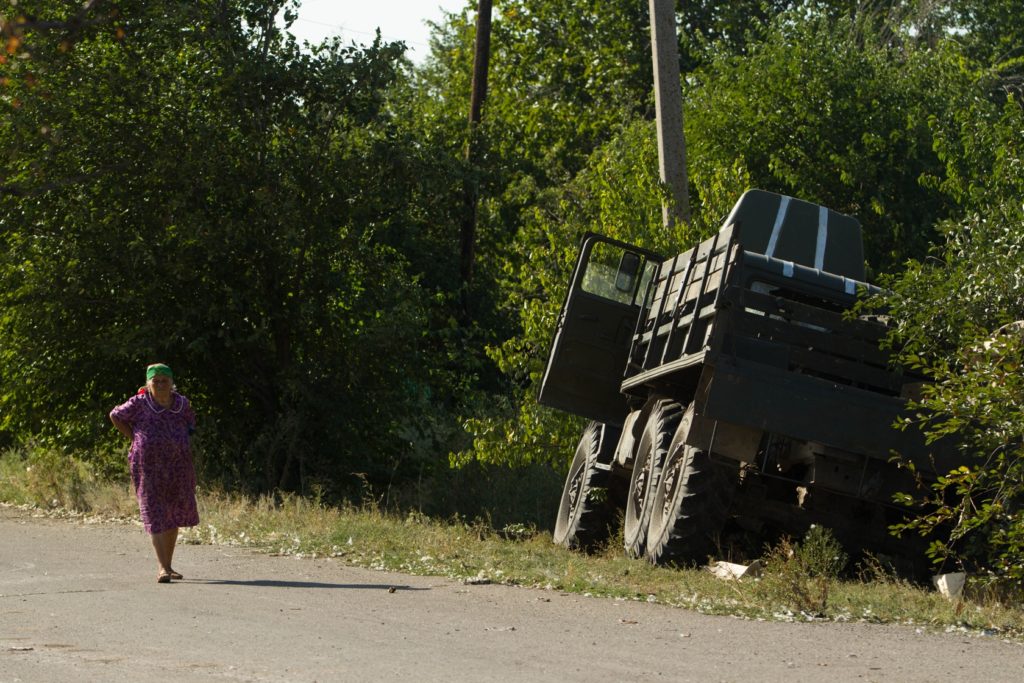
But, in fact, the captivity itself was really terrible. Every day someone was beaten up, they broke people’s bones. Nobody knew when all of this would end. You are always on that hook that maybe they would exchange us tomorrow. Or maybe the day after tomorrow. There was some absolutely fantastic gossip. From time to time they wanted to send us to dig something under the airport. Our building was not far from the airport. We constantly heard the sounds of artillery and we had a guilty conscience, because we were supposed to be there! I definitely had a guilty conscience, I felt that I was supposed to be there. And not here.
In general, Russians treated us good. No one beat us, there was nothing like that. In fact, the Russians were also scared. They said this aloud: “Guys, we are waiting here too” – these are their words.
As for men from the DPR, there were also different people – from real beasts to quite normal people. There were people who just liked to beat someone. There were people who took their own emotions on us. In general, they were stupid, undereducated, and aggressive people. And when a stupid, undereducated, and aggressive man gets a chance to hit or shoot someone, it ends badly.
We were interrogated both by the DPR and by Russians. There were members of the Federal Security Service of Russia at the interrogations. In fact, they had little interest in me. I did not have any photos, my Facebook page was deleted by my friends, and I had not given any interviews. They were very cruel to those who they had found on some photos or had seen in interviews. I was lucky in this regard. And here I have to be thankful to my number 1, who had told me in Petrivtsi, “You do not necessarily have to wear a balaclava, but you must be unnoticeable.” And, in fact, my family and I are grateful to him that I got out of there with two hands and two legs and that I am completely fine.
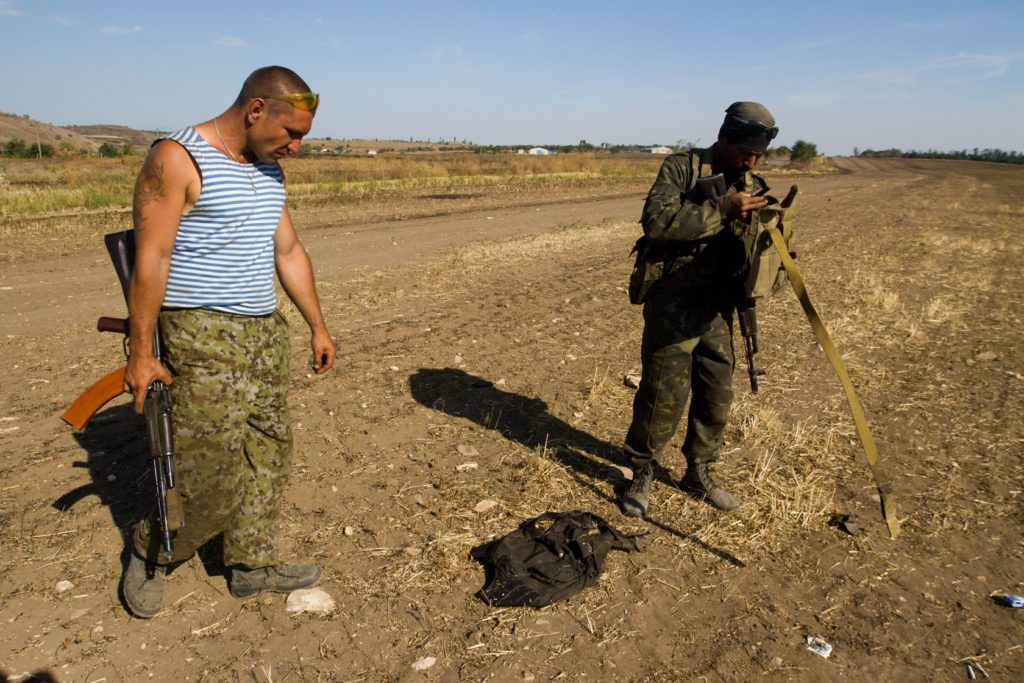
During four months we were told that nobody was interested in us. This affected many of us. But definitely not me, because I knew who my parents were. At least, I know my mother (laughs). I knew that she would turn the whole world upside down to get us out of there. I must say that at the first interrogation in Donetsk, I was allowed to make a call. I was very unsure whether I should do this, whether they would want something from her later, but I decided that it was better to let my relatives know that I was fine than to somehow hide my mother’s phone number from the separatists. So called, said that I was in Donetsk, that I was alive, safe and sound. She literally told me a couple of words and that they were doing everything possible to get us out of there. And I had no doubt that they would do this.
During the Maidan, I created a Facebook account for my mom. What was the key to success in our release? They (captives’ parents – editor’s note) got organized, helped the Security Service of Ukraine a lot, and did a lot of work for them. In fact, I think such an active work helped my mother endure this easier. Every day they wrote some statements, went to appointments, arranged meetings, wrote something down, took part in exchanges. This way she was calmer.
I was released on my future wife’s birthday – December 27. When I was released, they handed me a cell phone and said, “Call home.” I called Olya and said, “Happy birthday! I have nothing else to give to you as a present, but there is such an option (laughs)”
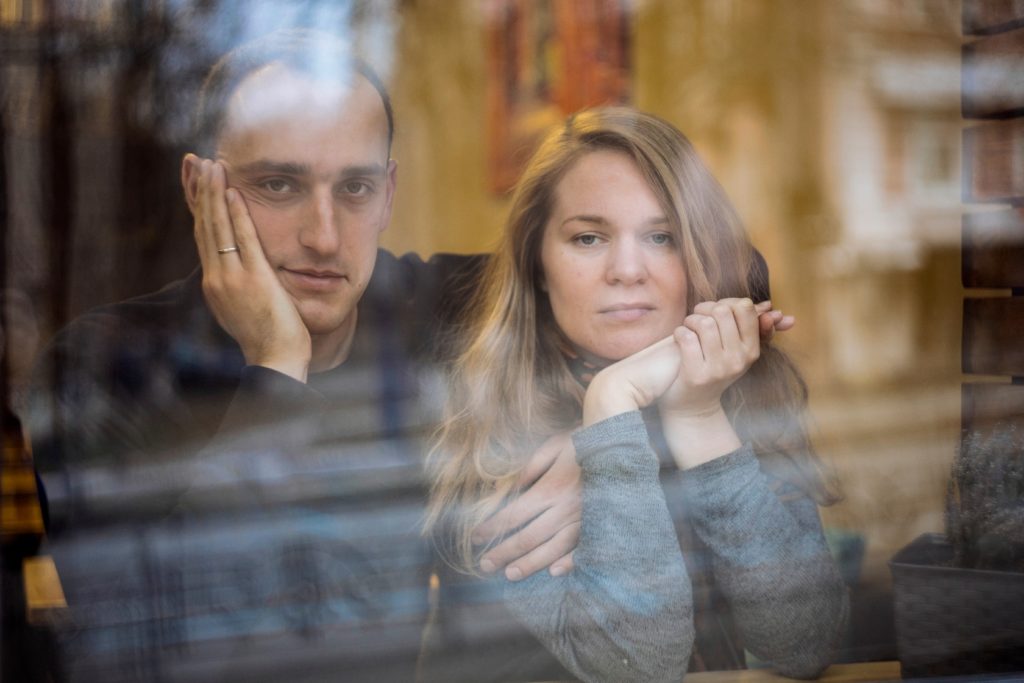
I had not concealed that I was going to Ilovaisk from her. I had agreed with my relatives that I would do everything to return (from the war – editor’s note). And they would do everything to ensure that I would not return to some nervous grieving people. And that they would go to meetings and have an active social life, and that they would not read the news and wait for news from me all day long.
I called when I could. I tried to do this every day. And they went to rallies in front of the building of the Ministry of Defense. I said calmly that everything was fine. Retold some events. We knew that we were sieged, there were many dead every day, but I was calm about my fate. I do not know why. Perhaps because we all think that death is not something that will happen to us.
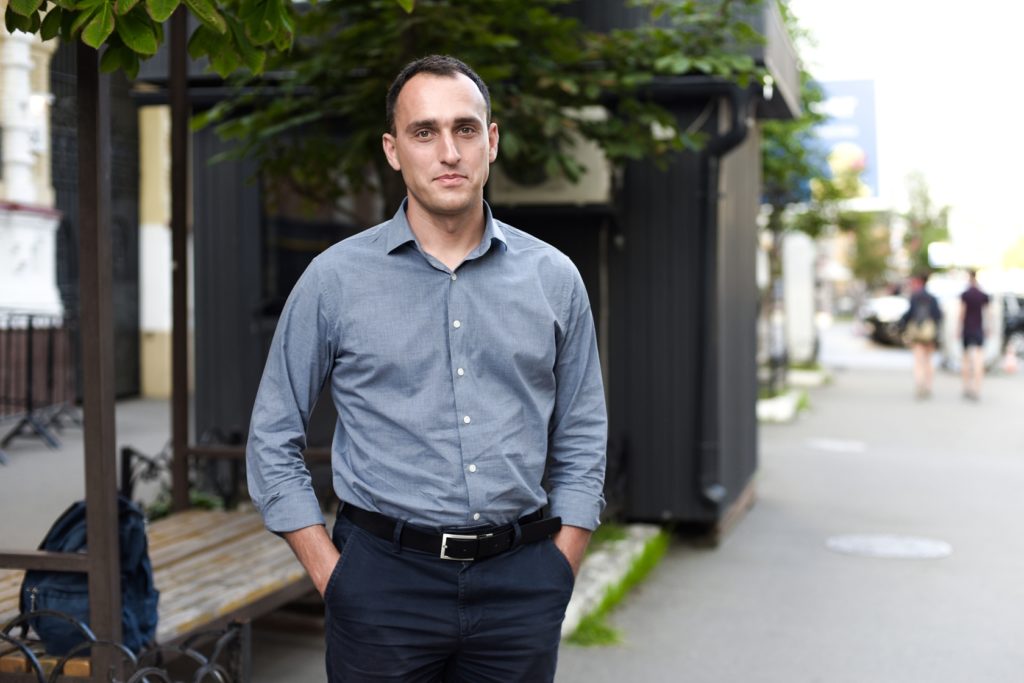
After all, I really dreamed of going to war and was very afraid that I would not get such a chance. Back then nobody thought that it was going to last four years. I had to quit work, to leave a very cool apartment I rented at that time.
I was afraid that I would come to the war, and there would already be no war there. I did not dream that our state would become very cool quickly. I knew that this would not happen soon. I knew that the generation that was older than me was very inert, and it would be difficult for them to rebuild themselves.
It is a little bit easier for my generation, because we are younger, we did not live in the Soviet Union for such a long time. But there is still too much Soviet Union in me as well. And it’s hard for me to fight this in myself. And when it comes to the entire country, it will not be a quick process.
I had been injured twice before Ilovaisk, I have two pieces of iron in my body. Just like everyone else, I returned nervous and angry. I resigned pretty quickly, because I did not trust the command. I resigned from the battalion somewhere in February (2015 – editor’s note).
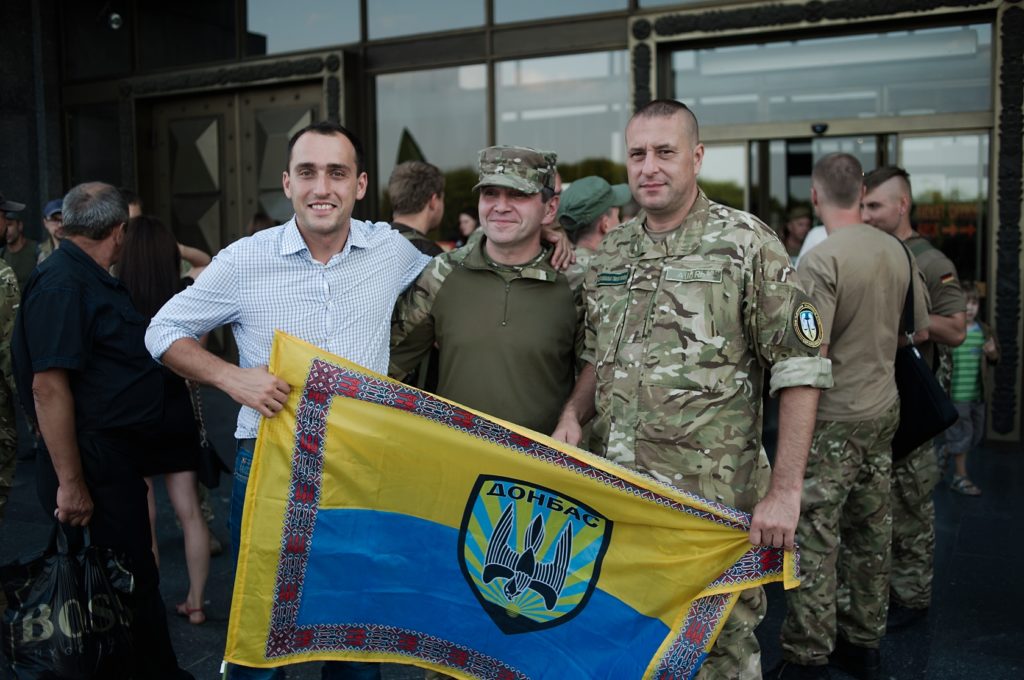
As for rehab – my relatives helped me a lot. A lot. And the desire to get out of this condition helped me too. In fact, sometime later I went to Filin (Filin was a commander of the “Dobnas – ZSU [Armed Forces of Ukraine]” battalion, which was formed after Ilovaisk – editor’s note) again. One guy and I went there in order to continue to serve. But I realized that if I continued to serve, I would never return. Never. This is one of the greatest truths at war.
As in the “Apocalypse Today” movie: sell a car, sell furniture, sell children – I will never return.” And I realized that.
At the war, everything is black and white. Excitement, the belief that you are doing the most important thing on the entire planet, the most honest and pure thing.
Would I go to a war again? Everything is very simple here: only if it was the beginning of 2014 again. We spent approximately a week in Filin’s “Donbas”. We had to make a decision whether to sign a contract or not, and we decided not to. We went home. After that I started experiencing a mental breakdown. This decision was very difficult for me. After that I had serious problems with liver and pancreas. I have not been drinking for two years since then.
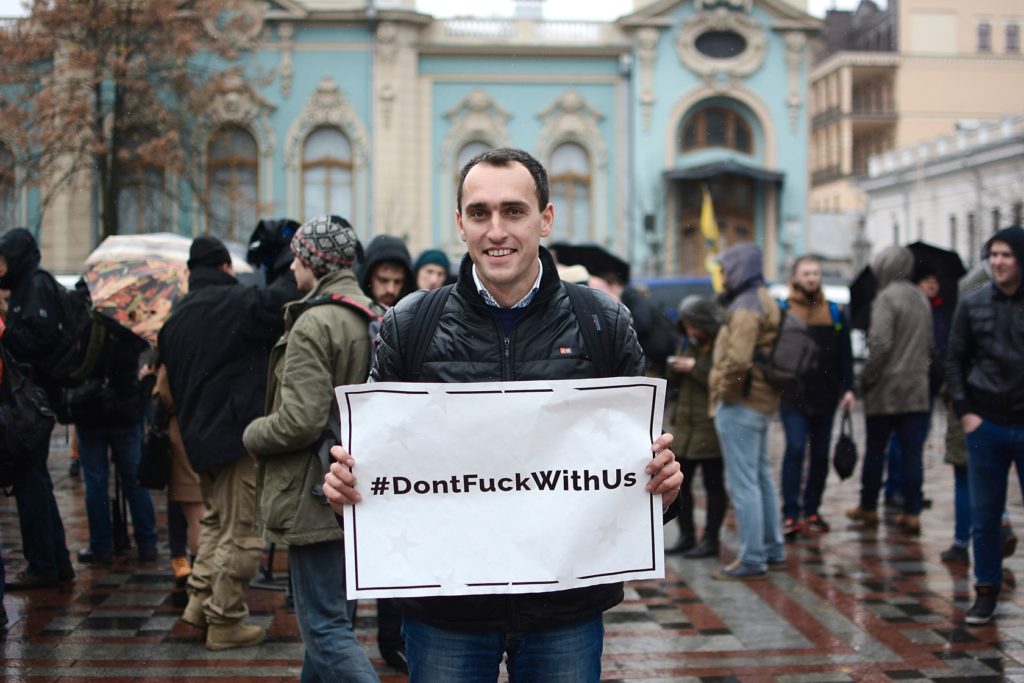
There are a lot of happenstances in life. When we were repairing the library in Ilovaisk, I came across Remarque’s book The Road Back. The book about German soldiers who returned home after World War I and about their problems. The problems are actually the same. It’s probably harder now, because we are used to a better life. Everything that is described in that book happened to me. And I was slightly prepared for that.
I knew that everything would be like that. And that is where I made a decision not to drink and to do sports. In fact, when you do not drink, you do not give vent to your emotions. I told the story about things that happened to me there many, really many times. And the thing you repeated 200 times does not bother you so much anymore.
If you spoke about this many times, if you pulled it out of your heart many times, a load is taken off your mind.
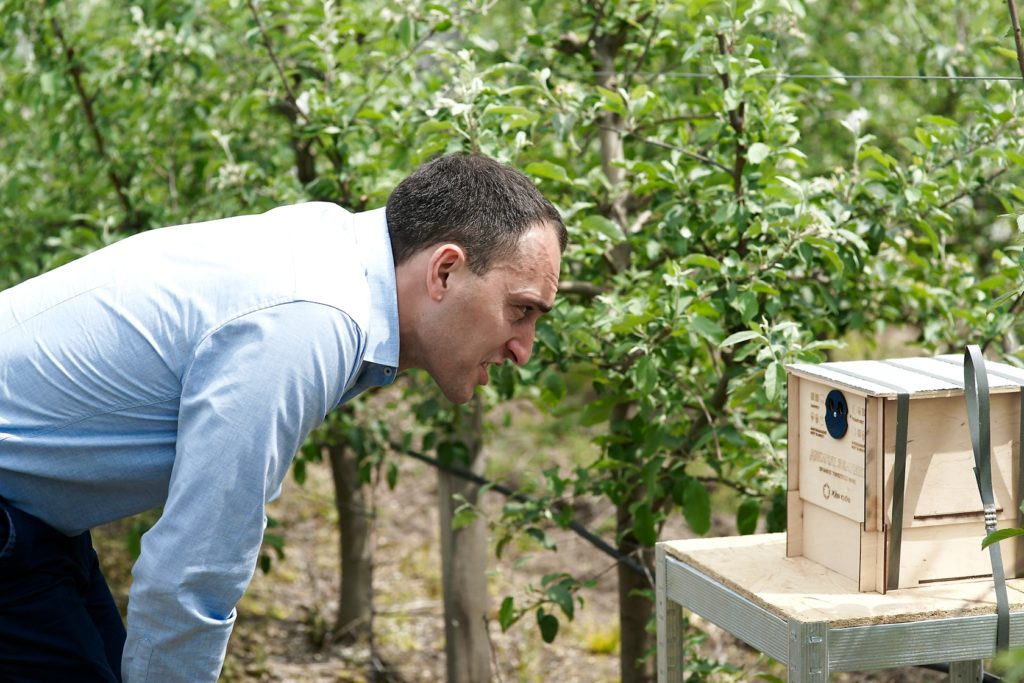
Exhausting physical exercises also help. Physical fatigue surpasses everything you feel inside. Well, and a desire. I had the desire and vision of what I wanted to do in my life. The fact that I had a goal and realized that if I continued to relive memories of the past, this would not let me go. And would not allow me to achieve what I wanted – a family and my own business. Eventually, I got married, and I have a really cool work and carry out social activities.
I currently sell bumblebees. Beehives with bumblebees. They pollinate flowers, and then tomatoes, cucumbers, cherries, and everything else grow from them.


